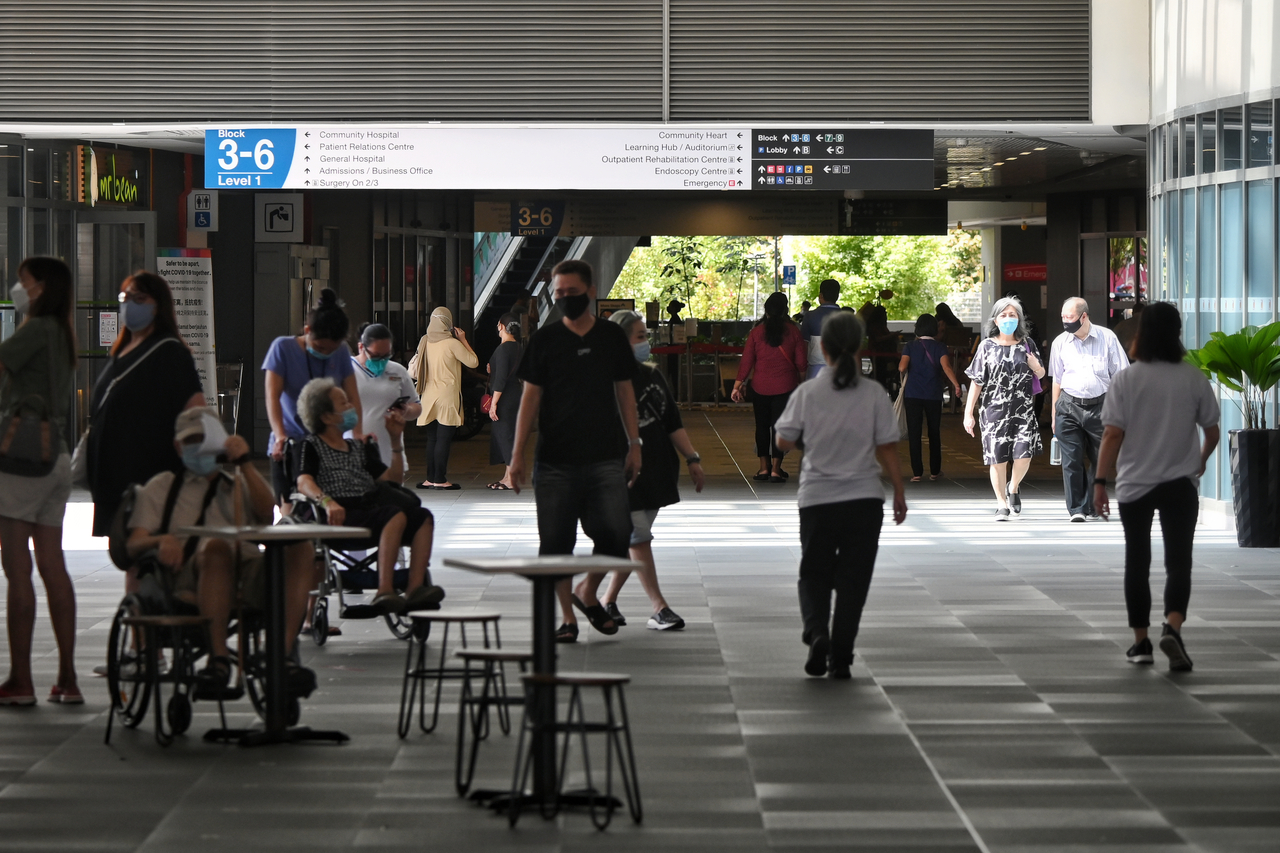Affordable healthcare, job security and economy on the minds of older adults in S'pore
Sign up now: Get ST's newsletters delivered to your inbox

Of the 7,428 respondents to a survey conducted in August 71.03 per cent expressed concern over the uncertainties caused by Covid-19.
ST PHOTO: KUA CHEE SIONG
SINGAPORE - Over 74 per cent of older adults between the ages of 56 and 75 are concerned with access to affordable healthcare even as Singapore makes plans to transition into a phase where the Covid-19 virus is endemic.
And of the 7,428 respondents to a survey conducted in August, 71.03 per cent expressed concern over the uncertainties caused by Covid-19, while 70.48 per cent were worried about contracting the virus.
These were among the key findings from the Singapore Management University's Centre for Research on Successful Ageing (Rosa) released at its symposium on Tuesday (Nov 30). The report compiled data from research that Rosa had conducted in August and October.
Of the 7,021 respondents surveyed in October, around 56 per cent were worried about performing regular antigen rapid tests (ART) and 53.55 per cent were most troubled by the restrictions on social gatherings.
Singapore has just emerged from a stabilisation phase and has relaxed social measures, allowing more people to dine together in restaurants and hawker centres, and also increasing group limits for gatherings.
But with a new variant, Omicron, emerging, the multi-ministry task force handling Covid-19 said on Tuesday it will hold off on further relaxation, although current measures will not be rolled back for now.
Apart from grappling with the uncertainty of living with Covid-19, participants of the survey also highlighted their concerns around the economy and job security.
In August, nearly 70 per cent of the respondents said they were worried about the state of the country's economy, while 60.37 per cent of those surveyed said that job security was what kept them on edge.
In his address as guest of honour, Minister for Manpower Tan See Leng said that businesses had to transform their approach to the employment of older workers and would only benefit greatly from it.
"Employers must invest in building up the human capital of their workforce, including the training and retention of their experienced senior and mature workers, many of whom have built up deep pools of tacit knowledge and know what makes the business tick," he told the symposium.
He said organisations like Rosa could play a critical role in helping society rethink its attitudes on ageing, and help more to view ageing as a positive force.
"By building on the close partnerships that SMU has with businesses, Rosa could also help translate some of these applied research findings into pilots, before scaling them to benefit whole industries," said Dr Tan, who is also Second Minister for Trade and Industry.
Economist Kim Seonghoon said the various government schemes currently in place to support the employment of older workers would give companies the opportunity to understand how best to deploy them within their workforce.
"I think of the older worker as a kind of new machine or new technology that has not been used before," assistant professor Kim said during a panel discussion.
"So we need to encourage the private sector or employers to use them first. Once they get to use them they will learn how to use them better."
Prof Kim, the deputy director of Rosa and an assistant professor at SMU, also stressed the importance of continued government support through its various programmes to maintain employment during the pandemic.
"To improve employment levels of older workers, we must first recover from the pandemic then we can shift focus on returning employment to levels prior to the pandemic."
Participants at the conference also suggested that employers start thinking of systematically refreshing job roles for all employees, not just older workers, which would help foster a spirit of learning and staying relevant. Having to learn new responsibilities would also keep cognitive skills sharp as the employee got older.
Professor Ursula M. Staudinger from the Dresden University of Technology said the training for workers mostly takes place when they first come into the workforce in their 20s and 30s but by the time they get to their early 40s they get comfortable with a certain position and the motivation to improve themselves stops.
"As soon as adults unlearn learning, it will be extremely hard to get them back into a learning mode," she said.


